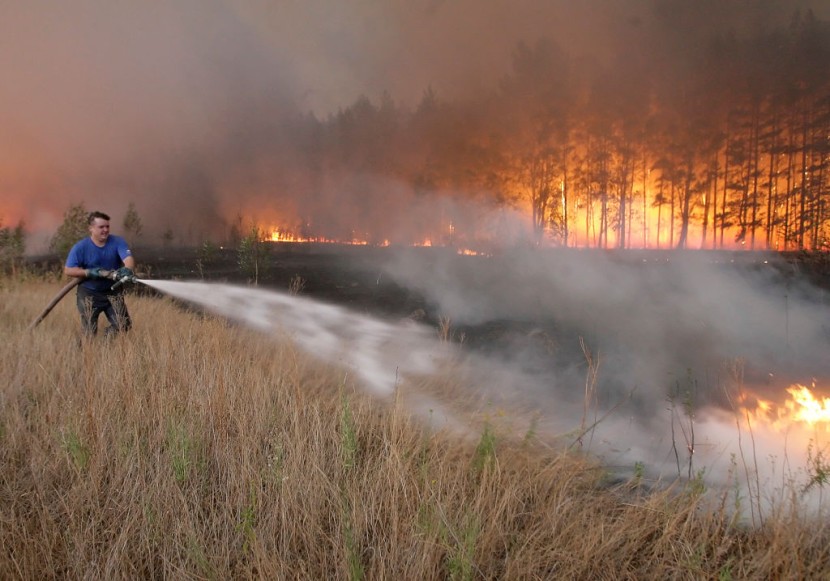
On Sunday, Russian officials began evacuating two villages in a huge region of Siberia where there were 155 active forest fires. According to the regional task force in charge of the emergency, the flames threatened a dozen villages in the Sakha-Yakutia republic in northern Siberia.
As crews totaling 3,600 personnel tried to contain approximately half of the blazes, inhabitants of two villages, Kalvitsa and Kharyyalakh, were being relocated to other populated regions. According to local officials, fire damaged 31 residences and eight maintenance facilities in another community, Byas-Kuel, on Saturday, evacuating around 400 people.
Wildfires threatened communities
Aysen Nikolayev, the governor of Yakutia, has instructed authorities to remove fire paths of dead wood and fallen trees near the threatened communities, The Washington Post reported. The government website in Yakutia had previously reported that Nikolayev had ordered the deforestation of regions near the threatened settlements, but his spokesperson maintained it was a mistake and that no such order had been issued.
The hot weather, along with a disregard for fire safety regulations, has increased the occurrence of fires. Experts also point to a 2007 decision to dismantle a federal aviation network that identified and combated wildfires as a contributing factor in the deteriorating fire situation.
The assets of the network were handed to regional authorities, a widely panned decision that hastened the demise of the fire-spotting agency. The vast woods that cover most of Russia make it difficult to spot fresh fires.
Per Business Mirror, officials reported 93 active forest fires to burn across 1.1 million hectares (2.8 million acres) of Sakha-Yakutia in northern Siberia, making it Russia's worst-affected area. According to the local task force dealing with the situation, a fire consumed hundreds of houses in the village of Byas-Kuel; and all village residents were evacuated.
Fires also raged near the villages of Kytyl-Dyura, Sinsk, and Yedyai, with Andrei Tarasenko, the local government leader who estimated that a total of 12 communities are presently threatened. The risk of fires spreading fast was increased by high winds.
Emergency crews in the community of Sangar were rushing to secure a vulnerable fuel supply facility. Officials were preparing to send in a heavy-lift plane to put out the fire.
Russia's extreme temperature prompts wildfires
Russia has seen extreme temperatures in recent years, which many experts attribute to climate change. The hot weather, along with a disregard for fire safety regulations, has increased the frequency of fires.
Experts also blame the deterioration of the fire situation on a decision made in 2007 to dissolve a federal aviation network responsible for detecting and combating fires and hand over its assets to regional authorities. The widely panned measure hastened the force's demise, as per The Journal.
It's difficult to notice fresh fires in Russia's forests, which span vast swaths of the country. On Friday, Russian President Vladimir Putin boarded a helicopter to look over a wildfire-ravaged area in the Ural Mountains' Chelyabinsk region. Following that, Putin led a meeting with key officials to discuss the situation.
So far this year, over 11,000 forest fires have destroyed an area of more than 6 million hectares (14.8 million acres), said Emergency Minister Yevgeny Zinichev. Wildfires enlisted the help of over 90,000 emergency personnel. Wildfires have overrun several cities and villages, including Mirnyi, where heavy firefighting planes are located, according to Yakutia administration chairman Aysen Nikolayev. Since July 29, flights have been suspended, forcing authorities to rely on helicopters and ground crews, he added.
Related Article: Stifling Heat Wave Prompts Health Alerts Across the US as Fifth Summer Begins
@YouTube








